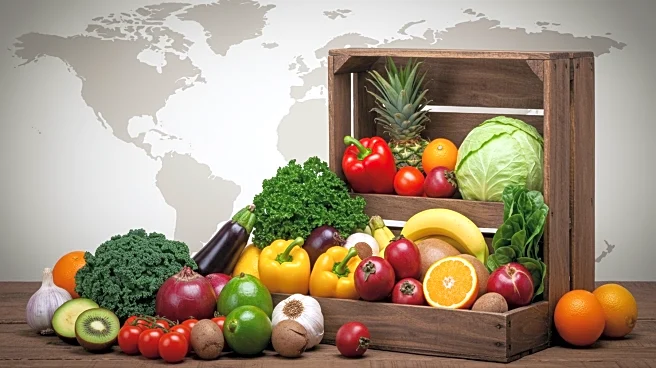What is the story about?
What's Happening?
President Trump has implemented a series of tariffs affecting global trade, including a 30% tariff on South African imports. This move has prompted South African agricultural exporters to reassess their strategies for accessing the U.S. market. Despite the tariffs, South Africa remains a significant player in global agriculture, particularly in citrus exports. The country is exploring ways to maintain its presence in the U.S. market by potentially reducing export prices to offset the tariffs. Discussions between South African and U.S. trade officials are ongoing to negotiate a deal that could reduce or eliminate these tariffs.
Why It's Important?
The tariffs imposed by President Trump have significant implications for international trade relations and the agricultural sector. For South African exporters, the U.S. market is crucial due to its size and premium pricing. The tariffs could lead to increased costs for U.S. consumers and reduced competitiveness for South African products. However, South African exporters may still find it profitable to export to the U.S. by adjusting their pricing strategies. The situation highlights the broader impact of trade policies on global supply chains and the importance of strategic market diversification.
What's Next?
As negotiations continue, the outcome will determine the future of South African exports to the U.S. market. If a favorable trade deal is reached, it could alleviate some of the financial pressures on South African exporters. Alternatively, if tariffs remain, exporters may need to further diversify their markets or adjust their business models to remain competitive. The situation also underscores the need for countries to develop resilient trade strategies in response to shifting global trade policies.
Beyond the Headlines
The tariffs raise questions about the long-term sustainability of current trade practices and the role of international organizations like the World Trade Organization in mediating trade disputes. The situation also highlights the potential for geopolitical tensions to influence economic policies and the importance of maintaining open and fair trade relations.















